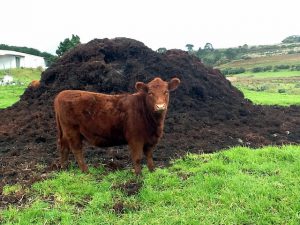Antibiotic use in livestock increases methane emissions from cows
 Photo Credit: Ian Barbour
Photo Credit: Ian Barbour
Use of antibiotics at low doses and over long periods of time for growth and prophylactic purposes in conventional livestock management is frequently criticized for the role it plays in driving antibiotic resistance in microbes. Now, a new study has found that the negative consequences of widespread antibiotic use in livestock, and cattle in particular, may include increased greenhouse gas emissions. Researchers treated one group of cattle with a three-day course of the antibiotic tetracycline and another group with no antibiotics. They found that manure from cows treated with antibiotics released almost twice as much methane as cows that were not treated. Researchers speculate that the increase in methane production is likely due to alterations in the microbial communities in the cow’s guts. Because methane is a potent greenhouse gas with a global warming potential that is 20 times greater than carbon dioxide, increased emissions from cows could contribute to global warming - although more studies are needed. The researchers also found that consuming dung from cattle treated with antibiotics also changed the microbiota associated with dung beetles (which play a critical role in decomposition), suggesting that “antibiotic treatment may have unintended cascading ecological effects that extend beyond the target species.”



